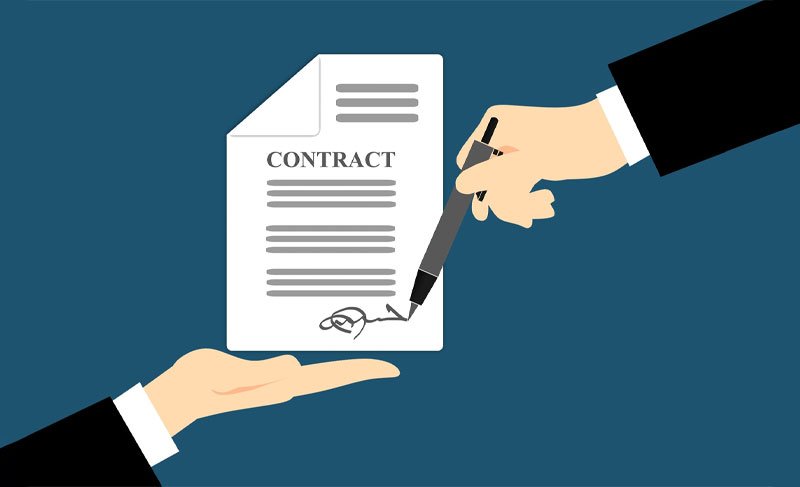The Intersection of Business and Law: Navigating Legal Challenges for Small Businesses
Operating a small business brings immense rewards but also legal complexities. As an entrepreneur, you straddle both the business and legal worlds, which intersect in many aspects of your company. From licenses and trademarks to shareholder agreements and overtime disputes, legal considerations underpin key business functions and processes. Understanding these challenges is essential for sustainable growth.
This article will explore the legal landscape for small businesses. We’ll cover common issues like licensing and employee laws as well as specialized topics like integration clauses. You’ll learn proven strategies for avoiding legal pitfalls based on real-world examples. Whether you run a startup or local store, these insights will help you navigate the intersection of business and law.
Small businesses are the backbone of many economies. In the United States alone, small businesses create two-thirds of net new jobs and drive tremendous innovation. However, they also face daunting legal challenges that can undermine success.
Navigating these legal complexities is an indispensable entrepreneurial skill. It enables you to secure necessary licenses, protect intellectual property, formalize shareholder rights, and comply with regulations. Just as importantly, avoiding legal disputes preserves scarce time and resources to focus on customers and growth.
This article will explore key areas where business and law intersect, including common legal issues, contract clauses, preventing disputes, business integration challenges, and antitrust laws. You will gain actionable insights to help your small business thrive in the face of legal headwinds.
Common Legal Issues Faced by Small Businesses
From daily operations to major transactions, small businesses confront diverse legal considerations that demand diligence and proactive management. Some issues include:
Licensing
Nearly all businesses require state, county, and municipal licenses to operate legally. Common examples include general business licenses, food handler permits, liquor licenses, taxi medallions, vendor permits, and professional certifications.
Failure to secure necessary licenses can result in hefty fines or even criminal charges in some jurisdictions. Entrepreneurs must identify and maintain appropriate licenses, which often require fees and paperwork to renew periodically.
Trademarks
A trademark protects names, symbols, sounds, or colors that identify goods and services in commerce. Registering a trademark enables entrepreneurs to:
- Prevent competitors from copying identifying aspects of their brand
- Seek legal recourse against infringements
- Build credibility with customers
Without a trademark, entrepreneurs risk losing control over critical intellectual property like brand names. However, the trademark registration process involves conducting searches, preparing applications, and monitoring marks over time.
Employee Termination
Hiring and firing is an inevitable aspect of small business management. However, terminating employees exposes companies to potential wrongful dismissal lawsuits if not handled appropriately.
Entrepreneurs must clearly document performance issues or policy violations before dismissal. Severance packages or extended notice periods can also prevent messy lawsuits. Understanding state and federal employment laws is key to avoiding costly legal errors.
Misclassification
Classifying workers as employees or independent contractors carries major legal implications. Employee misclassification triggers liability for unpaid taxes, overtime wages, employment discrimination, workplace safety standards, and other regulations.
The legal definition of “employee” is complex, factoring in degrees of company control over workers. Entrepreneurs who misclassify employees as contractors face lawsuits, tax bills, and penalties running into the hundreds of thousands.
Shareholders’ Agreement
Shareholders’ agreements formalize the relationships, rights, responsibilities and remedies among a company’s owners. These contracts address complex issues like profit distributions, voting procedures, transferal of shares, valuation formulas, and decision-making authority.
Creating detailed shareholder agreements prevents legal conflicts during pivotal moments like new funding rounds, mergers and acquisitions, leadership changes, or dissolution of the business. Even simple partnerships should utilize written shareholder agreements.
Overtime Disputes
Federal and state wage laws entitle most employees to overtime pay if they work over 40 hours in a week. Employers who miscalculate overtime can face lawsuits over unpaid wages as well as penalties for willful violations.
Wage theft lawsuits are increasingly common and difficult for businesses to defend against. Entrepreneurs must implement robust overtime pay policies and procedures to avoid potentially ruinous legal exposure.
Integration Clauses
Explanation of integration clauses and their importance
Amidst these complex regulations, integration clauses have emerged as vital contractual tools for small businesses. An integration clause states that the contract represents the complete understanding between parties, superseding prior oral or written agreements.
Including integration clauses serves several key functions:
- Limits future disputes – By establishing one definitive agreement, integration clauses prevent conflicting interpretations of past promises or proposals. This reduces the possibility of lawsuits based on verbal commitments or outdated drafts.
- Outlines entire understanding – Integration clauses clarify that all components of the agreement have been captured in the current contract. This prevents claims that binding pledges exist beyond the formalized terms.
- Prioritizes written terms – With an integration clause, the language of the contract overrides any competing verbal agreements. This provides certainty regarding which promises and policies hold legal weight.
- Bolsters legal standing – Integration clauses strengthen a contract’s enforceability in court. The clause demonstrates that parties consciously agreed to formalize a complete arrangement in writing.
In transactions involving products, real estate, loans, or equity, integration clauses mitigate risk by limiting what constitutes legal obligations between signees. Rather than leaving space for ambiguity, an integration clause encapsulates the definitive meeting of minds in text form.
Benefits of using integration clauses in business contracts
Given their importance for stability and transparency, utilization of integration clauses provides major benefits for small businesses:
1. Avoids “he said/she said” disputes – Integration clauses eliminate arguments over verbal comments or informal discussions that may have occurred earlier in a business relationship. By prioritizing the contract itself, integration clauses deter unproductive disagreements.
2. Strengthens compliance incentives – With all policies condensed into one formal document, integration clauses reinforce that parties must adhere to written clauses rather than follow inconsistent verbal directives. There is less wiggle room for skirting assigned duties.
3. Standardizes partnerships – For small companies collaborating with larger enterprises, integration clauses ensure that casual promises from powerful executives do not override formal conditions. Operational continuity depends on standardized, structural agreements.
In a nutshell, integration clauses crystallize responsibilities so that businesses relationships evolve on a firm contractual footing rather than an unstructured foundation of back-and-forth talks.
Legal Disputes and Small Businesses
Given scarce cash flows and limited bandwidth, legal disputes can paralyze small businesses. Lawsuits divert attention from operations, delay key decisions, and bleed financial resources. Just a single litigation can sink companies that fail to manage legal affairs proactively.
According to a U.S. Chamber Institute study, over 50% of small business owners have faced a lawsuit within the last five years. Of those impacted, around 40% spent over $100,000 handling the dispute. With so much at stake, preventing or resolving issues before they reach the courtroom is imperative.
Small companies can institute several reliable safeguards:
Utilize legal counsel – Hiring lawyers to review documents, contracts, policies, and transactions provides an essential shield against oversights that trigger lawsuits. Legal experts identify exposure points and recommend solutions tailored to a company’s budget.
Mediate disputes – Before engaging in litigation, small businesses can pursue mediation arrangements that explore mutually agreeable settlements. The flexibility of mediation processes suits small companies aiming to resolve conflicts quickly.
Document thoroughly – Meticulous record-keeping demonstrates good faith efforts to meet legal duties and provides evidence if lawsuits emerge. Records should cover areas like employee conduct, financial statements, client communications, procedural policies, and compliance systems.
With precautions like these, small businesses can anticipate and neutralize threats before they metastasize into costly legal action.
Business Integration and Its Legal Implications
Achieving integration across business departments is essential for organizational cohesion and market responsiveness. However, the integration process also creates legal vulnerabilities related to information technology and corporate culture.
Business integration entails aligning people, processes and systems to enable coordination and collaboration. This breaks down operational silos, spurring seamless experiences for both employees and customers. Typically this requires changes to infrastructure, workflows, metrics, and even office layouts.
Two key areas where business integration triggers legal considerations are:
IT assimilation – Many integration initiatives hinge on company-wide adoption of new software, databases, and analytics tools. Rapid technology deployment opens questions around data governance, cybersecurity, compliance protocols, and employee privacy. Legal vetting is necessary to avoid infractions.
Cultural consolidation – Integration can foment culture clashes as departments accustomed to decentralized models are compelled to follow common platforms, rules and procedures. Transition periods test workplace laws around harassment, discrimination, disability support, and unionization. Legal guidance facilitates delicate consolidations.
Failing to appreciate these integration stress points leaves small businesses exposed to tech misuse penalties, safety violations, diversity lawsuits, and poor regulatory compliance. With plans to unify operations, small companies must first unify legal strategies.
Proactive steps when merging business units include:
- Review new data flows under privacy statutes
- Confirm new software meets security rules
- Verify facility adjustments assist disabled personnel
- Notify all employees of revised conduct codes
- Document updated job descriptions and performance policies
Getting integration right delivers immense dividends; getting it wrong risks legal nightmares.
How to Navigate Common Legal Problems
Between licenses, trademarks, terminations, classifications, agreements, disputes and integration, what practical steps can small business owners take to navigate everyday legal hurdles?
Fundamentally, entrepreneurs must adopt structured processes for identifying and resolving issues, similar to managing finances or supply chains. Just as tracking cash flows or inventory levels is second nature even in hectic early-stage companies, regularly monitoring legal obligations enables stability.
Step 1: Create compliance calendar – Mark all recurring licensing deadlines, contract renewals, trademark maintenance, and regulatory reviews on a single calendar. Assign owners and build in reminders.
Step 2: Convene legal check-ins – Host monthly reviews to validate compliance status across all departments. Legal check-ins provide forums to discuss concerns and inspect procedural gaps early.
Step 3: Seek counsel on large transactions – For major contracts, equity issuances, facility leases, or technology purchases, secure legal opinions regarding terms and conditions. This mitigates blind spots before commitments become binding.
Step 4: Build playbooks for common issues – Codify procedures for repeatedly tackled problems like employee misconduct, customer complaints, safety incidents, data breaches etc. Playbooks supply ready protocols.
Step 5: Back up everything – Comprehensive documentation creates official records to justify business decisions if ever questioned legally. From customer requests to performance reviews, document thoroughly.
Step 6: Cultivate company-wide legal mindset – Through training and awareness campaigns, ensure every employee appreciates how their role impacts contractual duties, disputes, compliance, and other legal pillars.
Undoubtedly, limited resources make legal rigor challenging for small enterprises. Nonetheless, seeing law as an integrated component of operations rather than an isolated function protects long-run sustainability. Just like finance and tech, law permeates everyday business.
Antitrust Laws and Small Businesses
America’s antitrust regulations promote fair competition by constraining anti-competitive practices in trade and commerce. These laws empower the Federal Trade Commission and Department of Justice to prosecute “unreasonable” restraints on trade like monopolization, price-fixing, and blocking market access. Not even small companies are exempt.
In October 2022, the FTC announced an investigation into potential antitrust violations among suppliers of outsourced dental work like crowns and veneers. The probe targets anti-competitive conduct between SmileDirectClub and Align Technology which could illegally squeeze out smaller rivals.
Other recent enforcements impacting small businesses include:
- Penalties against conspiracies among private equities to rig bids on acquisition targets
- Banning agreements where leading entertainment agencies agreed not to poach each other’s agents
- Scrutiny into exclusive promotional deals between beverage brands and live event venues
Antitrust lawsuits carry severe consequences like business dissolution, executive imprisonment, and fines up to 100% of revenues. While antitrust principles seem esoteric, their real-world impacts make awareness mandatory even for early-stage companies.
Common but prohibited practices include:
- Colluding with competitors on product pricing or market allocation
- Predatory pricing to undercut rivals’ costs until they exit
- Tying products like only selling X if customers also buy Y
- Blocking competitors’ access to essential distribution channels
As small businesses grow through partnerships and networks, they must be careful not to trip antitrust tripwires. Seeking counsel around agreements with possible competitors, suppliers, channels and customers pays dividends before coordination backfires.
Conclusion
At the intersection of business and law, small companies must manage unique legal complexities to sustain success. From local permits to federal regulations, legal factors enable sales yet also pose existential threats if mishandled.
Equipping yourself with literacy around licenses, trademarks, terminations, classifications, shareholding, overtime, contracts, disputes and antitrust law provides stability for growth. Savvy entrepreneurs build compliance into workflows through checklists, counsel, documentation and periodic reviews.
Rather than perceiving legal considerations as external irritations, integrate them as fundamental business skills alongside accounting, marketing and HR. Building this mindset makes navigating legal headwinds effortless. It also helps your small business write its own inspiring success story built on a bedrock of legal knowledge.





